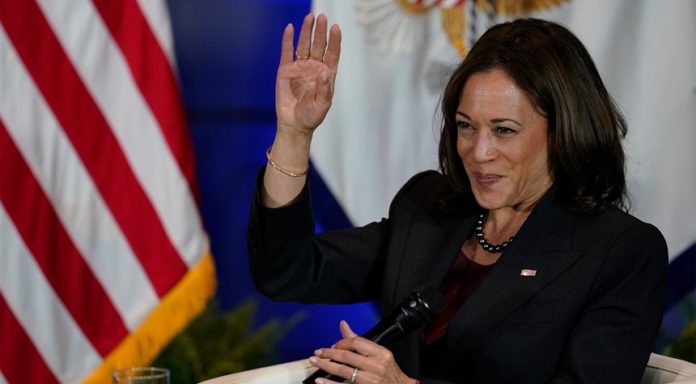In recent weeks, we haven’t seen Vice-President Kamala Harris as much.
Although it’s not necessarily bad considering her penchant for making cringeworthy word salads and embarrassing the United States on a global stage, it doesn’t mean she’s completely out of the ordinary.
In November, Harris spent some time on Twitter, posting photos and videos of her family and trips to other countries. It was a tweet about vaccines she posted Monday that attracted a lot of attention, especially after Health and Human Secretary Xavier Becerra posted a similar one the next day that seemed to contradict Harris.
Harris tweeted, “One shot once a year–that’s it for most people to remain protected from COVID year long,” with a link to vaccines.gov.
One shot, once a year—that’s all most people will need to stay protected from COVID year-long. Make a plan to get your shot at https://t.co/ddwWZdNCgg.
— Vice President Kamala Harris (@VP) November 28, 2022
Becerra, on the contrary, suggested that people who haven’t had a shot for more than two months should get one immediately to help them avoid the worst effects of COVID. This message was targeted at those over 50, who according to the CDC are most susceptible to dying from severe coronavirus cases.
An updated COVID vaccine can help protect you from the worst outcomes of COVID. If it’s been over 2 months since your last dose, make a plan to get one now.
Find updated vaccines at https://t.co/b0lnuggpPW. pic.twitter.com/MQUdE921Du
— Secretary Xavier Becerra (@SecBecerra) November 29, 2022
Which one is the best? Do you want one every two months or once a year? Mixed messaging caused confusion and some wondered what the science behind the different claims was.
Yesterday the Vice President @VP told us that a covid booster is good for a year. Today the health secretary is telling us it’s only good for two months. Nobody will tell us its actual benefits or risks.
How can we be expected to believe a word from this administration? https://t.co/391AjtcCZ0
— Sarah Beth Burwick (@sarahbeth345) November 29, 2022
Others pointed out that the vaccine does not prevent you from getting it again. However, the CDC states it can help you avoid having to deal with a severe case. Many who replied to Becerra’s message wondered when exactly the every-two-month thing began.
Instead of listening, I decided to go directly to the CDC website. There was more information and I was directed to different links, much like how you are transferred from one person to another during a call to your insurance provider or cell phone provider.
One page gives you information on how to stay up-to-date with vaccines and boosters. It also directs to another page for people who are “moderately to severely immunocompromised”. Below that, you will find drop-down dosage recommendations. None of these recommend more than four doses, including the two that were promoted heavily in 2021.
It is confusing, but it is best to remember one thing. Instead of listening to politicians or other public health officials giving mixed messages about what you should do, especially those who weakened the vaccine at the time it was politically convenient, then changed their tune after 2020, talk to your doctor if you have any questions or concerns.
It’s as easy as that.
Although this should not be taken as medical advice, I know of people over 50 who received the first two Pfizer shots along with the 1st booster. However, they were advised to skip the fourth dose due to insufficient evidence. One case involved a doctor telling the patient that they had sufficient protection by getting the first two shots and surviving COVID.
Every case is unique, so it is important to speak to a trusted medical professional. They should be able to point you in the right direction, and not officials from the government.




